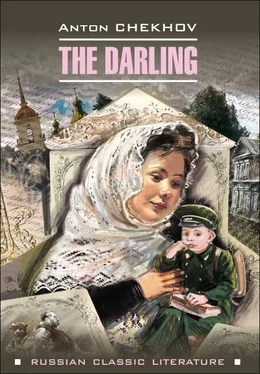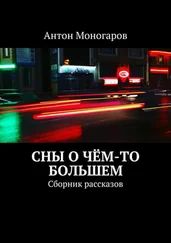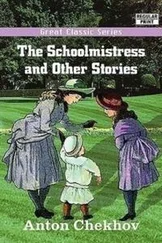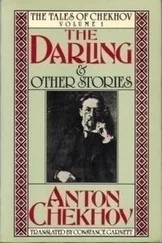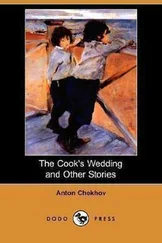Антон Чехов - The darling / Душечка. Сборник рассказов
Здесь есть возможность читать онлайн «Антон Чехов - The darling / Душечка. Сборник рассказов» — ознакомительный отрывок электронной книги совершенно бесплатно, а после прочтения отрывка купить полную версию. В некоторых случаях можно слушать аудио, скачать через торрент в формате fb2 и присутствует краткое содержание. Год выпуска: 2019, ISBN: 2019, Издательство: Литагент Каро, Жанр: Классическая проза, Русская классическая проза, Прочая научная литература, на английском языке. Описание произведения, (предисловие) а так же отзывы посетителей доступны на портале библиотеки ЛибКат.
- Название:The darling / Душечка. Сборник рассказов
- Автор:
- Издательство:Литагент Каро
- Жанр:
- Год:2019
- ISBN:978-5-9925-1149-9
- Рейтинг книги:5 / 5. Голосов: 1
-
Избранное:Добавить в избранное
- Отзывы:
-
Ваша оценка:
- 100
- 1
- 2
- 3
- 4
- 5
The darling / Душечка. Сборник рассказов: краткое содержание, описание и аннотация
Предлагаем к чтению аннотацию, описание, краткое содержание или предисловие (зависит от того, что написал сам автор книги «The darling / Душечка. Сборник рассказов»). Если вы не нашли необходимую информацию о книге — напишите в комментариях, мы постараемся отыскать её.
The darling / Душечка. Сборник рассказов — читать онлайн ознакомительный отрывок
Ниже представлен текст книги, разбитый по страницам. Система сохранения места последней прочитанной страницы, позволяет с удобством читать онлайн бесплатно книгу «The darling / Душечка. Сборник рассказов», без необходимости каждый раз заново искать на чём Вы остановились. Поставьте закладку, и сможете в любой момент перейти на страницу, на которой закончили чтение.
Интервал:
Закладка:
Laptev grasped the meaning of her words, and his mood was transformed, completely, abruptly, as though a light in his soul had suddenly been extinguished. Filled with the shame of a man humiliated, of a man who is disdained, who is not liked, who is distasteful, perhaps disgusting, who is shunned, he walked out of the house.
“I would give everything,” he thought, mimicking himself as he went home through the heat and recalled the details of his declaration. “I would give everything – like a regular tradesman. As though she wanted your everything !”
All he had just said seemed to him repulsively stupid. Why had he lied, saying that he had grown up in a world where every one worked, without exception? Why had he talked to her in a lecturing tone about a clean and happy life? It was not clever, it was not interesting; it was false – false in the Moscow style. But by degrees there followed that mood of indifference into which criminals sink after a severe sentence. He began thinking that, thank God! everything was at an end and that the terrible uncertainty was over; that now there was no need to spend whole days in anticipation, in pining, in thinking always of the same thing. Now everything was clear; he must give up all hope of personal happiness, live without desires, without hopes, without dreams or expectations, and to escape that dreary sadness which he was so sick of trying to soothe, he could busy himself with other people’s affairs, other people’s happiness, and old age would come on imperceptibly, and life would reach its end – and nothing more was wanted. He did not care, he wished for nothing, and could reason about it coolly, but there was a sort of heaviness in his face especially under his eyes, his forehead felt drawn tight like elastic – and tears were almost starting into his eyes. Feeling weak all over, he lay down on his bed and in five minutes was sound asleep.
III
The proposal Laptev had made so suddenly threw Yulia Sergeyevna into despair.
She knew Laptev very little, had made his acquaintance by chance; he was a rich man, a partner in the well-known Moscow firm of “Fyodor Laptev and Sons”; always serious, apparently clever, and anxious about his sister’s illness. It had seemed to her that he took no notice of her whatever, and she did not care about him in the least – and then all of a sudden that declaration on the stairs, that pitiful, ecstatic face …
The offer had overwhelmed her by its suddenness and by the fact that the word ‘wife’ had been uttered, and by the necessity of rejecting it. She could not remember what she had said to Laptev, but she still felt traces of the sudden, unpleasant feeling with which she had rejected him. He did not attract her; he looked like a shopman; he was not interesting; she could not have answered him except with a refusal, and yet she felt uncomfortable as if she had done wrong.
“My God! I should go into the room without delay, on the stairs,” she said to herself in despair, addressing the ikon which hung over her pillow; “and no courting beforehand, but so strangely, so oddly …”
In her solitude her agitation grew more intense every hour, and it was beyond her strength to master this oppressive feeling alone. She needed some one to listen to her story and to tell her that she had done right. But she had no one to talk to. She had lost her mother long before; she thought her father a queer man, and could not talk to him seriously. He worried her with his whims, his extreme readiness to take offence, and his meaningless gestures; and as soon as one began to talk to him, he promptly turned the conversation on himself. And in her prayer she was not perfectly open, because she did not know for certain what she ought to pray for.
The samovar was brought in. Yulia Sergeyevna, very pale and tired, looking dejected, came into the dining-room to make tea – it was one of her duties – and poured out a glass for her father. Sergey Borisovitch, in his long coat that reached below his knees, with his red face and unkempt hair, walked up and down the room with his hands in his pockets, pacing not from corner to corner, but backwards and forwards at random, like a wild beast in its cage. He would stand still by the table, sip his glass of tea with relish, and pace about again, lost in thought.
“Laptev proposed to-day,” said Yulia Sergeyevna, and she flushed crimson.
The doctor looked at her and did not seem to understand.
“Laptev?” he queried. “Panaurov’s brother-in-law?” He was fond of his daughter; it was most likely that she would sooner or later be married and leave him, but he tried not to think about that. He was afraid of being alone, and for some reason fancied that if he were left alone in that great house, he would have an apoplectic stroke, but he did not like to speak of this directly.
“Well, I’m delighted to hear it,” he said, shrugging his shoulders. “I congratulate you with all my heart. It offers you a splendid opportunity for leaving me, to your great satisfaction. And I quite understand your feelings. To live with an old father, an invalid, half crazy, must be very irksome at your age. I quite understand you. And the sooner I’m laid out and in the devil’s clutches, the better every one will be pleased. I congratulate you with all my heart.”
“I refused him.”
The doctor felt relieved, but he was unable to stop himself and went on:
“I wonder, I’ve long wondered, why I’ve not yet been put into a madhouse – why I’m still wearing this coat instead of a strait-waistcoat? I still have faith in justice, in goodness. I am a fool, an idealist, and nowadays that’s insanity, isn’t it? And how do they repay me for my honesty? They almost throw stones at me and ride rough-shod over me. And even my nearest kith and kin do nothing but try to get the better of me. It’s high time the devil fetched an old fool like me …”
“There’s no talking to you like a rational being!” said Yulia.
She got up from the table impulsively and went to her room in great wrath, remembering how often her father had been unjust to her. But a little while afterwards she felt sorry for her father, too, and when he was going to the club she went downstairs with him and shut the door after him. It was a rough and stormy night; the door shook with the violence of the wind, and there were draughts in all directions in the passage, so that the candle was almost blown out. In her own domain upstairs Yulia Sergeyevna went the round of all the rooms, making the sign of the cross over every door and window; the wind howled, and it sounded as though some one were walking on the roof. Never had it been so dreary, never had she felt so lonely.
She asked herself whether she had done right in rejecting the man, simply because his appearance did not attract her. It was true he was a man she did not love, and to marry him would mean renouncing forever her dreams, her conceptions of happiness in married life, but would she ever meet a man of whom she dreamed, and would he love her? She was twenty-one already. There were no eligible young men in the town. She pictured all the men she knew – government clerks, schoolmasters, officers, and some of them were married already, and their domestic life was conspicuous for its dreariness and triviality; others were uninteresting, colourless, unintelligent, immoral. Laptev was anyway a Moscow man, had taken his degree at the university, he spoke French. He lived in the capital, where there were lots of clever, noble, remarkable people; where there was noise and bustle, splendid theatres, musical evenings, first-rate dressmakers, confectioners … In the Bible it was written that a wife must love her husband, and great importance was given to love in novels, but wasn’t there exaggeration in it? Was it out of the question to enter upon married life without love? It was said, of course, that love soon passed away, and that nothing was left but habit, and that the object of married life was not to be found in love, nor in happiness, but in duties, such as the bringing up of one’s children, the care of one’s household and so on. And perhaps what was meant in the Bible was love for one’s husband as one’s neighbour, respect for him, charity.
Читать дальшеИнтервал:
Закладка:
Похожие книги на «The darling / Душечка. Сборник рассказов»
Представляем Вашему вниманию похожие книги на «The darling / Душечка. Сборник рассказов» списком для выбора. Мы отобрали схожую по названию и смыслу литературу в надежде предоставить читателям больше вариантов отыскать новые, интересные, ещё непрочитанные произведения.
Обсуждение, отзывы о книге «The darling / Душечка. Сборник рассказов» и просто собственные мнения читателей. Оставьте ваши комментарии, напишите, что Вы думаете о произведении, его смысле или главных героях. Укажите что конкретно понравилось, а что нет, и почему Вы так считаете.
